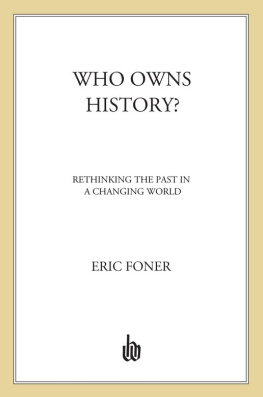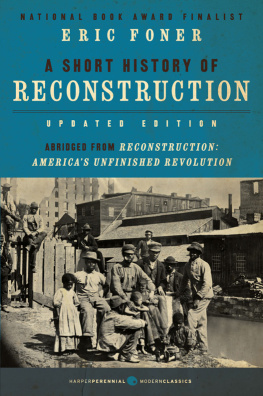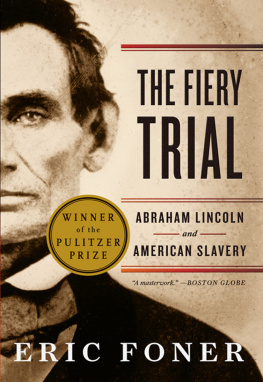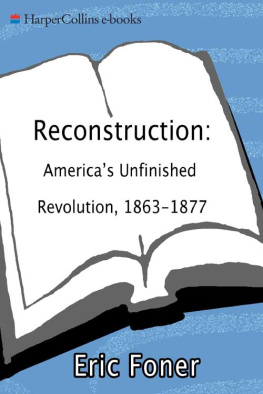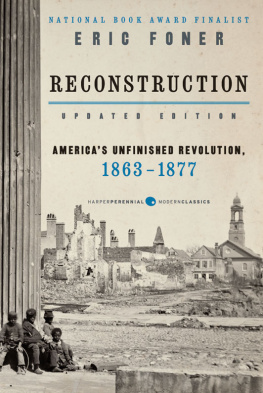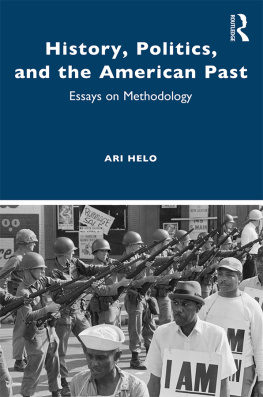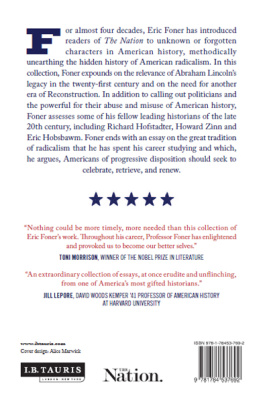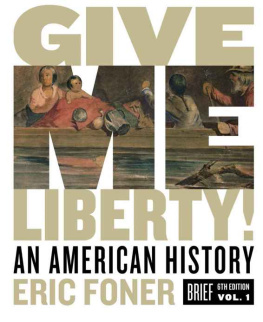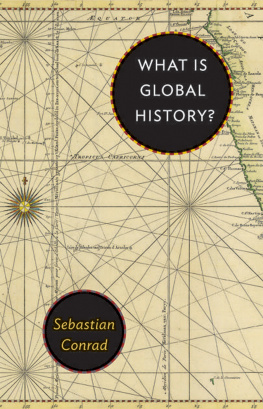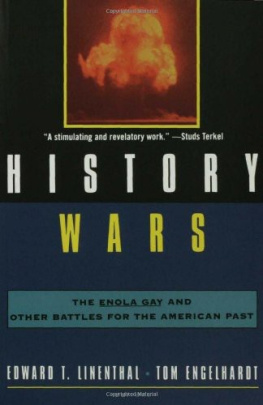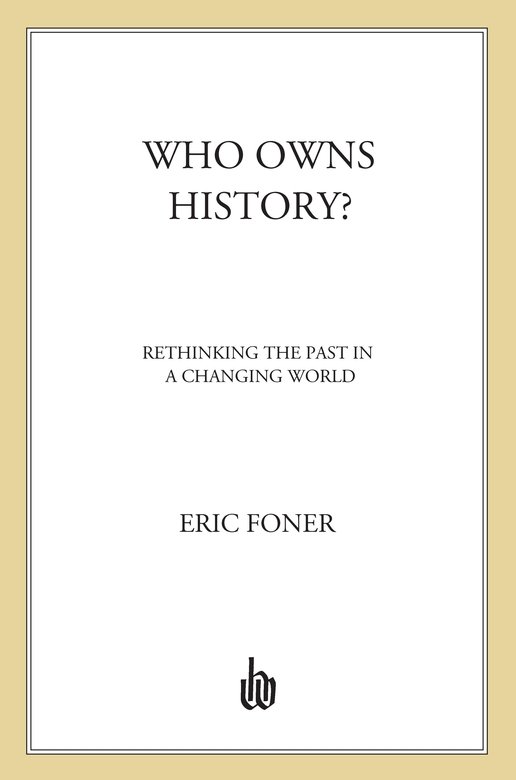1. MY LIFE AS A HISTORIAN
Originally published in Paul Cimbala and Robert F. Himmelberg, eds., Historians and Race: Autobiography and the Writing of History (Bloomington, Ind., 1996), reprinted courtesy of the Indiana University Press. The essay has been slightly updated.
2. THE EDUCATION OF RICHARD HOFSTADTER
Introduction to Social Darwinism in American Thought (Beacon Press, 1992); reprinted by permission of Beacon Press, Boston. I wish to thank Jack D. Foner, Beatrice Kevitt Hofstadter, Walter P. Metzger, James P. Shenton, Fred Siegel, and Arthur W Wang for their helpful comments and suggestions.
Richard Hof-stadter, The Great Depression and American History: A Personal Footnote, typescript of lecture, Box 36, Richard Hofstadter Papers, Rare Book and Manuscript Library, Columbia University. This lecture is undated, but internal evidence indicates that it was written in the mid-1960s.
Alfred Kazin, New York Jew (New York, 1978), 15. Susan S. Baker, Radical Beginnings: Richard Hofstadter and the 1930s (Westport, Conn.,1985), is the best account of Hofstadters early career and his involvement with political radicalism.
Hofstadter to Kenneth Stampp, December 1944, quoted in Baker, Radical Beginnings , 180.
Hofstadter to Harvey Swados, January 20, April 30, 1938, Harvey Swados Papers, Archives, University of Massachusetts, Amherst.
Hofstadter to Harvey Swados, May 29, 1938, February 16, 1939, Swados Papers.
Hofstadter to Harvey Swados, October 9, 1939, March 1940, Swados Papers.
Hofstadter to Harvey Swados, October 9, 1939, Swados Papers.
Richard Hofstadter, The Southeastern Cotton Tenants under the AAA, 1933-1935, unpublished masters thesis, Columbia University, 1938.
David Hawke, Interview: Richard Hofstadter, History 3 (1960), 141.
Richard Hofstadter, The Tariff Issue on the Eve of the Civil War, American Historical Review 44 (October 1938), 5055.
Felice Swados Hofstadter to Harvey Swados, February 6, 1939, Swados Papers.
Hofstadter to Harvey Swados, April 15, 1939; Felice Swados Hofstadter to Harvey Swados, May 6, 1940, Swados Papers.
Hofstadter to Harvey Swados, May 1941, Swados Papers.
Felice Swados Hofstadter to Harvey Swados, June 2, 1940, with marginal comments by Richard Hofstadter, Swados Papers; Hofstadter, The Great Depression and American History.
Richard Hofstadter, Darwinism and Western Thought, in Darwin, Marx, and Wagner, edited by Henry L. Paine (Columbus, Ohio, 1962), 6061.
Hawke, Interview, 138. In an Authors Note to the 1955 edition, Hofstadter credited his second wife, Beatrice Kevitt Hofstadter, for shar[ing] equally with me in the task of revision.
Irvin G. Wyllie, Social Darwinism and the Businessman, Proceedings of the American Philosophical Society 103 (October 1959), 62935.
Robert C. Bannister, Social Darwinism: Science and Myth in Anglo-American Social Thought, rev. ed. (Philadelphia, 1988).
Bannister, Social Darwinism , xviii.
Dorothy Ross, The Origins of American Social Science (New York, 1991),8591; Carl N. Degler, In Search of Human Nature: The Fall and Revival of Darwinism in American Social Thought (New York, 1991), 11.
Ross makes this point in Origins of American Social Science, as does John L. Recchiuti in Intellectuals and Progressivism: New Yorks Social Scientific Community 1880-1917, unpublished Ph.D. diss., Columbia University, 1991. See also Nancy L. Stepan, Race and Gender: The Role of Analogy in Science, ISIS 77 (1986), 26177.
See Degler, In Search of Human Nature.
For more detailed surveys of Hofstadters subsequent career as a historian, see Stanley Elkins and Eric McKitrick, Richard Hofstadter: A Progress, in The Hofstadter Aegis: A Memorial , edited by Elkins and McKitrick (New York, 1974), 30067, and Daniel J. Singal, Beyond Consensus: Richard Hofstadter and American Historiography, American Historical Review 89 (October 1984), 9761004.
Arthur M. Schlesinger, Jr., Richard Hofstadter, in Pastmasters, edited by Robin W. Winks (New York, 1969), 289; Hofstadters marginal comments on the draft of Schlesingers essay are in the Hofstadter Papers.
Peter Novick, That Noble Dream: The Objectivity Question and the American Historical Profession (New York, 1988), 334n.
Hofstadter, The Great Depression and American History.
Novick, That Noble Dream , 323.
Singal, Beyond Consensus, 996n; Novick, That Noble Dream , 326.
Richard Hofstadter, The Age of Reform (New York, 1955), 14; Hofstadter to Harvey Swados, June 3, 1962, Swados Papers.
3. AMERICAN FREEDOM IN A GLOBAL AGE
Originally published in American Historical Review 106 (February 2001), 116. Reprinted by permission of the American Historical Association. Thanks to Professor Thomas Bender of New York University for inviting me to participate in the 1999 La Pietra Conference on Internationalizing the Study of American History, where some of the ideas in this essay were first developed, and for his extremely helpful comments on the paper I delivered there. I also wish to thank my colleague Victoria DeGrazia for sharing with me some of her insights on the consequences of globalization.
Brooks Adams, The New Empire (New York, 1902), 208.
W T Stead, The Americanisation of the World : or, The Trend of the Twentieth Century (London, 1902), 5, 59, 123.
David Reynolds, One World Divisible : A Global History Since 1945 (New York, 2000), 65051; Anthony D. Smith, Nations and Nationalism in a Global Era (Cambridge, 1995), I-4; David Held et al., Global Transformations : Politics, Economics and Culture (Cambridge, 1999), 3-7; Multiple Modernities, special issue of Daedalus (Winter 2000).
Karl Marx and Frederick Engels, The Communist Manifesto: A Modern Edition (New York, 1998), 39. See also Kevin H. ORourke and Jeffrey G. Williamson, When Did Globalization Begin? , National Bureau of Economic Research Working Paper 7633 (Cambridge, 2000).
Geoffrey Barraclough, The Larger View of History, Times Literary Supplement, January 6, 1956, ii.
W.E.B. Du Bois, Black Reconstruction in America (New York, 1935), 15; Herbert E. Bolton, Wider Horizons of American History (New York, 1939), 2.
J. H. Elliott, Do the Americas Have a Common History? (Providence, 1998); Bonnie S. Anderson, Joyous Greetings: The First International Womens Movement, 1830-1860 (New York, 2000); Matthew F. Jacobson, Barbarian Virtues: The United States Encounters Foreign Peoples at Home and Abroad, 1876-1917 (New York, 2000); Daniel T Rodgers, Atlantic Crossings : Social Politics in a Progressive Age (Cambridge, Mass., 1998); Oscar V Campomanes, New Formations of Asian American Studies and the Question of U.S. Imperialism, Positions 5 (Fall 1997), 52350.

